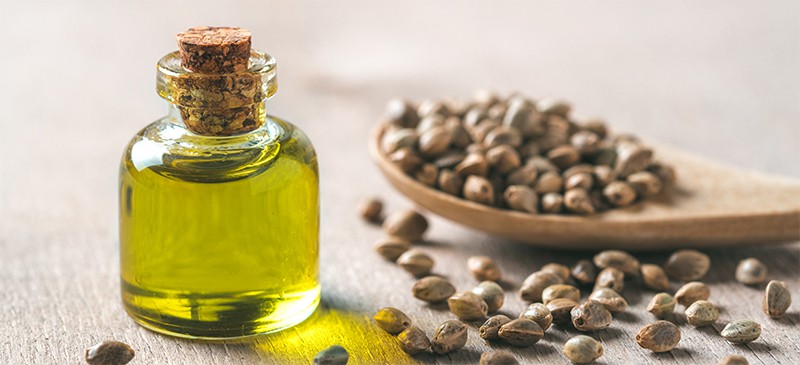This Dr. Axe content is medically reviewed or fact checked to ensure factually accurate information.
With strict editorial sourcing guidelines, we only link to academic research institutions, reputable media sites and, when research is available, medically peer-reviewed studies. Note that the numbers in parentheses (1, 2, etc.) are clickable links to these studies.
The information in our articles is NOT intended to replace a one-on-one relationship with a qualified health care professional and is not intended as medical advice.
This article is based on scientific evidence, written by experts and fact checked by our trained editorial staff. Note that the numbers in parentheses (1, 2, etc.) are clickable links to medically peer-reviewed studies.
Our team includes licensed nutritionists and dietitians, certified health education specialists, as well as certified strength and conditioning specialists, personal trainers and corrective exercise specialists. Our team aims to be not only thorough with its research, but also objective and unbiased.
The information in our articles is NOT intended to replace a one-on-one relationship with a qualified health care professional and is not intended as medical advice.
Hemp Oil Benefits and Uses for Skin, Hair and More
January 24, 2019

Some people are exclaiming that we are in middle of a cannabis revolution in the U.S. And that does seem to be true, with the popularity of cbd oil and CBD products growing and becoming much more widespread across the country. But long before the legality of certain cannabis products, hemp seeds and hemp oil have been available in your local health food store.
Yes, hemp seed oil comes from the cannabis plant. But it can be used knowing that it contains trace amounts of THC. In fact, hemp seed oil serves as an excellent source of nutrients and has been used internally and topically in Eastern cultures for hundreds of years.
Curious about the possible hemp oil benefits? You need to remember three important words: essential fatty acids. Hempseed oil is packed with omega-3 and omega-6 fatty acids that can help foster overall health. Some ways to use it is to add just a tablespoon or two to your meals or apply it topically to your skin or even your hair — prior to shampooing.
What Is Hemp Oil?
Hemp oil is harvested by cold-pressing hemp seeds. Although it comes from the cannabis plant, hemp oil (also called hempseed oil) contains only trace amounts of THC, the psychoactive, intoxicating element in cannabis.
Hemp and marijuana both come from the Cannabis sativa species, but the amount of THC present in the plant is what makes them different. When it contains less than 0.3 percent THC, it’s considered hemp. And when it has more THC, it’s considered marijuana. This means that you can use hemp oil and eat hemp seeds without feeling “high” afterwards.
So what’s so special about hemp oil? It serves as a natural source of important nutrients, including polyunsaturated fatty acids (including omega-6s and omega-3s), terpenes and proteins. It does not contain THC or CBD, so the main appeal of hemp oil is its fatty acid profile and other beneficial nutrients.
There’s confusion about the compounds in hemp oil for good reason. Some products labeled as “hemp oil” do actually include cannabinoids like CBD. These kind of superfoods with cannabinoids also act on receptors of the endocannabinoid system.
But if you are focused on increasing your intake of healthy fats and more, you’re likely looking for oils extracted from hemp seeds, so go for products labeled as “hempseed oil.”
Hemp Oil vs. CBD Oil
Hemp seed oil is extracted from the seeds of the cannabis plant, and it contains little to no THC or CBD. But you may have seen “CBD hemp oil” on the market and aren’t sure about the difference.
Cannabidiol (CBD) oil is created by extracting CBD from the cannabis or hemp plant and then diluting it with a carrier oil, like coconut oil or even hemp seed oil. Most CBD oil products come from industrial hemp, which can only have trace amounts of THC. These products are gaining popularity for its purported CBD benefits and because it doesn’t cause a “high,” as it doesn’t affect the same receptors as the psychoactive agent THC.
Meanwhile, unlike both hemp oil and cbd oil, cannabis oil contains THC and is psychoactive and/or intoxicating.
Uses
1. Skin
Hempseed oil is commonly used on skin because it works as a natural moisturizer, and nourishes the skin. You’ll see it as an ingredient in many cosmetic products, lotions and soaps. It is also an antioxidant and may benefit the skin when used internally and topically.
Researchers found that dietary hemp oil increased levels of both essential fatty acids, linoleic acid, alpha-linolenic acid and GLA. Skin dryness improved, and it’s believed that this positive change resulted from an abundant supply of polyunsaturated fatty acids provided by hemp oil ingestion.
2. Hair
If your hair is dry and brittle, try applying a small amount of hemp oil while conditioning your hair or after showering — or even as a deep conditioner prior to shampooing. The fatty acids in hempseed can help to moisturize your hair and scalp, adding to your own natural oils. This is exactly why fatty acids are often used in hair shampoos and conditioners and serums. The omega-3s in hemp oil will also help to add shine, tame unruly hair and give it strength.
3. Provides Chlorophyll
Believe it or not, hemp oil is also a source of chlorophyll, a substance in plants that allow them to make food from carbon dioxide and water. This plant pigment has been linked to certain benefits and is a great (and often little-known) aspect of hemp oil.
4. Features Essential Amino Acids
Hemp oil features all nine of the essential amino acids that our bodies cannot produce on their own. Your body needs all amino acids to function properly and consuming foods high in essential amino acids can help the body to function as it is designed to.
Eating foods high in amino acids, like hempseed oil, is a plus when it comes to overall health!
Where to Buy and How to Use
Hemp seed oil can be found all across the U.S. Hemp oil products come from the Cannabis sativa plant. Pure hemp seed oil is extracted from the seeds of the hemp plant, but you can also find products that are made with hemp extract, which comes from the entire plant including its stem and leaves. It’s also common for hemp seed oil products to contain medium-chain triglyceride (MCT) oil or vegetable glycerine.
There are many hemp oil products on the market today and knowing what exactly is in the oil can be confusing. Some oils do contain CBD because hemp extract is used in the product, while others contain none. But hemp oil should never contain THC, as it’s not categorized as “hemp” unless the THC levels are under 0.3 percent.
If you’re looking to purchase an oil that contains little or no CBD or THC, then look for “hempseed oil” and read the label carefully. You can find pure hemp seed oil for internal and topical use, or as soft-gel capsules.
Ingesting one to two tablespoons of hempseed oil can help to increase your intake of essential fatty acids and antioxidants. Hemp oil can be added to smoothies and many recipes, as it has a pleasant nutty flavor. Hempseed oil should not be heated above 300 degrees Fahrenheit, so instead of using it for cooking, it can added to salads, dips, spreads and veggie dishes as a flavor enhancer.
If you are looking for oil that contains CBD, then opt for products that are labeled as “hemp oil,” “CBD hemp oil” or “hemp extract.” Again, read the label carefully and always start with a smaller dose to determine how your body reacts to the product. (And, of course, consult your healthcare professional prior to use.)
Risks and Side Effects
With so many hemp products on the market today, knowing exactly what you’re getting can be confusing. If you are looking to increase your intake of essential fatty acids or for your skin or hair, then hempseed oil is a great choice.
Hemp seed oil can be added to food or applied directly to the skin and hair. Keep in mind that hemp seed oil has a smoke point of 330 degrees Fahrenheit, which means that it will oxidize when used at high temperatures for cooking. That’s why it’s best to use hemp oil to add flavor (and nutrients) to your favorite recipes.
The recommended daily dose of hempseed oil is typically about 1–2 tablespoons per day. If you plan to ingest more than that, consult your healthcare provider beforehand. And if you are on anticoagulant medications or other medications, be sure to check with your healthcare provider to be sure that it’s safe to use hempseed oil.
Final Thoughts
- Hemp oil is harvested by cold-pressing hemp seeds.
- Hempseed oil has an impressive nutrient profile. It is high in essential fatty acids, polyunsaturated fatty acids, essential amino acids and terpenes.
- The top uses include for:
- Skin
- Hair
- Its chlorophyll
- Its essential amino acids
Read Next: Hemp Protein Powder — The Perfect Plant-Based Protein

